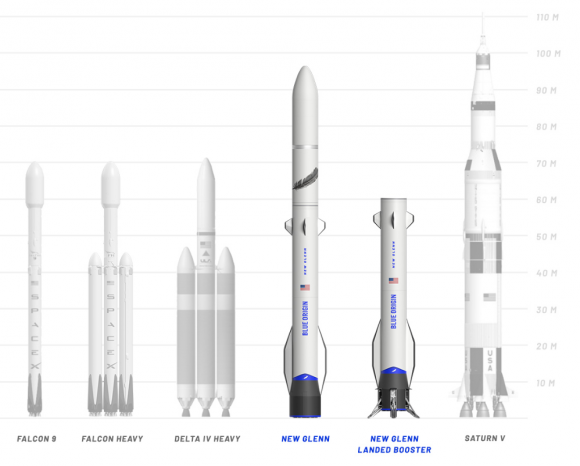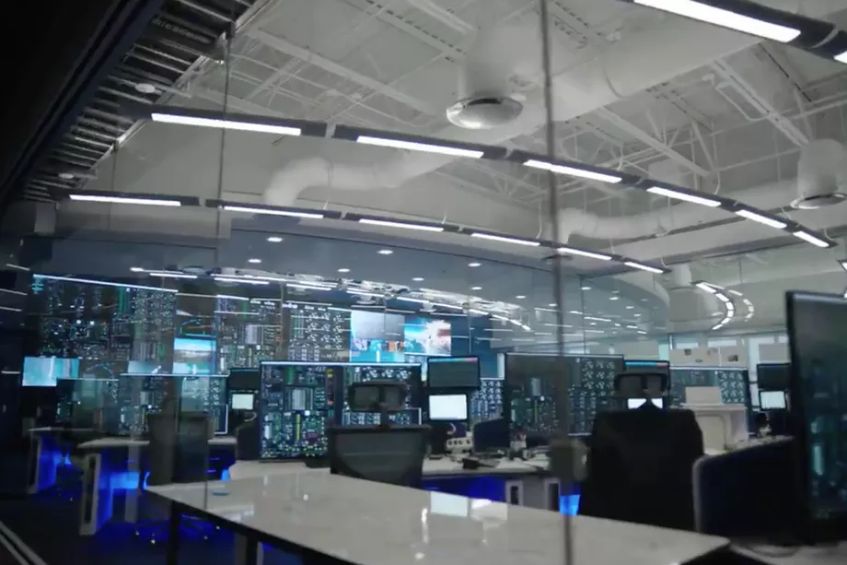Blue Origin wants to start taking tourists to space as soon as possible. After successfully completing the 12 New Shepard test in December 2019, the company founded by Jeff Bezos is already preparing the next rocket to integrate its fleet of space vehicles: the New Glenn.
Blue Origin made known through its official Twitter account that it has already completed the development of the rocket fairing. Named after American astronaut John Glenn, the space vehicle wants to be the rival of SpaceX's Falcon Heavy and, if all goes as planned, will make its first official flight in 2021.
Blue Origin's backstage images already demonstrate the size of the cone that will be at the tip of the New Glenn. The rocket's fairing is so big that there's room for the entire New Shepard ship. In all, when it is ready, the partially reusable rocket will have a height of more than 95 meters, being capable of carrying more than 45 tons of cargo.

The company also announced that it has already completed the preparation of the mission control center. The facility is located in Cape Canaveral, Florida, where Blue Origin is developing the New Glenn rocket. Even earlier, Blue Origin revealed that it has started testing the New Glenn engines at its Texas facility.

At the same time, rival SpaceX encountered some problems in the most recent test of Starship SN1, the new prototype of the spacecraft that one day will land on the Red Planet. The company led by Elon Musk decided to test the spacecraft in a test in Boca Chica, Texas, however, the space vehicle did not withstand the pressure and exploded.
SpaceX continues, however, to work to obtain the necessary licenses for further tests of the spacecraft that will travel to Mars. By mid-March of this year, the company wants to test the Starship's Raptor engines at a higher altitude than usual and then be able to land it on firm ground to prove that it can be reused when it lands on other planets.
In January of this year, SpaceX was able to successfully carry out a test of the mission's emergency system, managing to obtain NASA certification for the beginning of piloted tests. The next step is to do a manned test, with Demo-2, which is scheduled for the first quarter of 2020.
